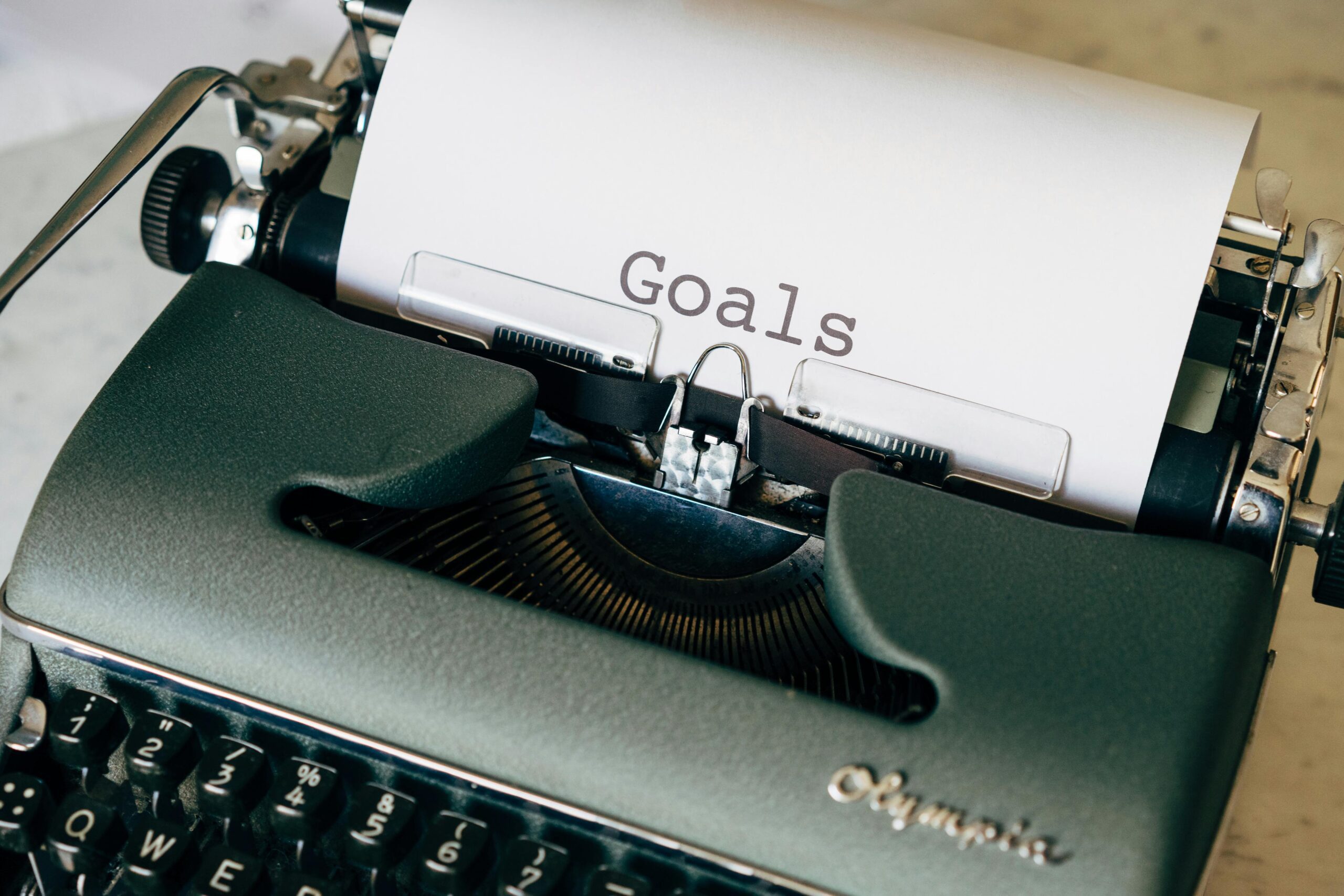NOTE!
The next 5 minutes hold the power to transform your life forever. Read further only if you promise to read the whole article to evolve, improve, and prosper in life. Instead of wasting your precious time on social media invest these only 5 minutes towards self-improvement.

In today’s fast-paced world, self-growth has become more critical. With life’s constant changes and challenges, setting personal development goals has become essential for anyone looking to lead a fulfilling and successful life.
Whether you’re striving for personal growth at work or in your personal life, setting smart goals for self-development can help you transform your life in meaningful ways. This article’ll explore ten personal development goals that can bring about profound positive changes and set you on a path towards self-growth.
So, if you’re ready to take charge of your life and unlock your true potential, read on to discover the goals that can help you achieve personal development and all-round success.
Why Setting Personal Development Goals is Important for Self-Growth?
Setting personal development goals is more important than ever in a world that constantly demands our attention and pulls us in multiple directions.
Whether we’re improving ourselves professionally or personally, having goals for self-growth is crucial to our overall well-being and success.Setting goals for self-development allows us to have a clear direction and purpose in life.
By defining what we want to achieve, we can focus our energy and effort on areas that truly matter to us. Without clear goals, we may wander, unsure of what steps to take or what we truly want. Goals provide us with a roadmap, guiding us towards becoming the best version of ourselves.
Goal Setting Strategies for Achieving Personal Development Goals
Setting personal development goals is crucial for self-growth and creating a fulfilling life. However, it can be challenging to navigate the process of goal setting and stay motivated.
To achieve your personal development goals, you need a clear plan and effective strategies. First, you must define them. Then, take some time to reflect on what aspects of your life you want to improve or change.
Whether enhancing your career, improving your health and fitness, or cultivating better relationships, having a clear focus will guide your goal-setting process. Once you have identified your goals, break them down into smaller, manageable steps.
This will make the journey seem less daunting and increase your chances of success. Create a timeline and set specific deadlines for each step, as this will help you stay accountable and measure your progress.
Cultivating a Growth Mindset: A Key to Reaching Your Personal Development Goals
Cultivating a growth mindset is essential in our quest for personal development. Our mindset greatly influences our ability to reach our goals and achieve self-growth.
A growth mindset is the belief that abilities and intelligence can be developed through dedication and hard work. Individuals with a growth mindset are more likely to embrace challenges, persist in the face of setbacks, and see failure as an opportunity for learning and growth.
They understand that effort and determination are crucial for personal development. By adopting a growth mindset, we can unlock our full potential and overcome obstacles that may arise along our journey.
We must first become aware of our fixed mindset tendencies to cultivate a growth mindset. This is when we believe that our abilities and intelligence are fixed traits that cannot be changed.
By acknowledging and challenging these beliefs, we open ourselves up to new possibilities and opportunities for growth.
Developing Self-Discipline to Achieve Personal Growth Objectives
Personal development goals are essential for self-growth, but achieving these objectives requires self-discipline. Developing self-discipline is vital for individuals to stay focused, motivated, and committed to their goals.
It involves setting clear objectives, creating a plan of action, and being determined to stick to it. Setting realistic and attainable goals is one key aspect of developing self-discipline.
Identifying what you truly want to achieve and breaking it down into smaller, manageable tasks is crucial. Doing so can create a clear roadmap towards your objectives and avoid feeling overwhelmed or discouraged. Another essential element of self-discipline is creating a routine and sticking to it.
This involves developing healthy habits and avoiding distractions that may hinder progress. Prioritizing your goals and allocating time specifically to work towards them is essential.
Sticking to a routine cultivates the consistency and dedication required for personal growth. Additionally, self-discipline requires a strong focus and the ability to resist instant gratification.
It is natural to face temptations or distractions along the way, but developing the willpower to say no and stay on track is crucial.
Self-discipline allows you to overcome challenges, maintain momentum, and ultimately achieve your personal development goals for self-growth.
Enhancing Emotional Intelligence as Part of Your Personal Development Goals
Personal growth and development have become crucial in today’s fast-paced and competitive world.
Along with goals such as career advancement and financial stability, it is vital to prioritize our emotional well-being. Enhancing emotional intelligence is a valuable skill that can significantly contribute to our personal development goals for self-growth.
Emotional intelligence is the ability to recognize and understand one’s emotions and those of others.
It involves effectively managing and expressing emotions, building solid relationships, and making sound decisions. Developing emotional intelligence enhances our self-awareness and empathy, which are essential for personal growth.
One way to enhance emotional intelligence is through self-reflection. Understanding our emotions, triggers, and reactions can provide valuable insights into our behavioural patterns.
Engaging in activities such as journaling or meditation can help us better understand ourselves and improve our emotional intelligence.
Building Resilience and Overcoming Challenges in Pursuit of Self-Growth
Building resilience and overcoming challenges are crucial steps in the journey of personal growth and self-improvement.
Faced and conquering obstacles is the only way to truly grow and evolve into our best version. The road to self-growth is rarely smooth; it is often filled with setbacks, failures, and disappointments.
However, it is precisely during these difficult times that we have the opportunity to develop resilience and cultivate the necessary skills to overcome any obstacles that come our way.
One of the first steps to building resilience is to set clear personal development goals for self-growth. These goals provide direction and purpose, giving us something to strive for and work towards. By identifying and defining our aspirations, we can create a roadmap that helps us push through challenges and setbacks.
These goals allow us to stay motivated and focused on the bigger picture, even when faced with adversity.
Another critical aspect of building resilience involves embracing failure and reframing setbacks as opportunities for growth. Rather than viewing failure as a dead-end, see it as a stepping stone to success.
Reframing challenges as learning experiences can extract valuable insights and lessons from each setback. This shift in perspective helps us bounce back more robustly and more determinedly to achieve our personal development goals.
The Impact of Continuous Learning on Personal Development and Self-Growth
Continuous learning is an essential aspect of personal development and self-growth. It involves actively seeking new knowledge, skills, and experiences to expand one’s horizons and improve oneself.
Committing to lifelong learning can enhance one’s personal and professional life in numerous ways. Personal development goals for self-growth are unique to each individual and depend on one’s interests, passions, and aspirations.
However, some common areas that people often focus on are communication skills, time management, emotional intelligence, and leadership abilities.
Continuous learning allows individuals to develop these areas by attending workshops, enrolling in courses, reading books, and seeking mentorship.
The impact of continuous learning on personal development and self-growth is undeniable.
Not only does it enhance knowledge and skills, but it also stimulates personal growth by challenging comfort zones and fostering a growth mindset.
Through continuous learning, individuals become more adaptable, curious, and open-minded, which allows them to embrace change and seize new opportunities. In conclusion, continuous learning propels the journey of personal development and self-growth.
Individuals can unlock their full potential and lead more fulfilling lives by setting personal development goals and actively pursuing new knowledge and experiences.
Remember, personal development is a lifelong journey. By consciously incorporating these habits into daily life, individuals can continually strive for progress and achieve their full potential.
Moving Forward: Sustaining Momentum After Achieving Personal Development Goals
Developing healthy habits is essential for personal growth and development. It is a journey that requires time, effort, and commitment.
Individuals can become more self-aware, successful, and fulfilled by consciously nurturing these habits. Setting personal development goals is a crucial step in this process.
These goals help individuals focus on areas of improvement, allowing them to take the necessary steps to achieve their full potential.
One important habit to cultivate is self-reflection. Reflecting on one’s thoughts, actions, and emotions can increase self-awareness.
This habit allows individuals to identify their strengths and weaknesses, enabling them to develop growth strategies. Self-reflection also fosters a deeper understanding of one’s values and beliefs, helping individuals align their actions and choices accordingly.
Another healthy habit to adopt is practising mindfulness. Being present at the moment and fully engaged with whatever task or activity is at hand can lead to greater focus and productivity.
Mindfulness also helps individuals manage stress, enhance their emotional well-being, and improve their overall quality of life. By incorporating mindfulness into daily routines, individuals can develop greater clarity and purpose.

I think the admin of this site is actually working hard in support of his web site, as here every
information is quality based data.
It is in reality a great and useful piece of info. I am happy that you just shared this useful information with
us. Please stay us informed like this. Thank you for sharing.
Right away I am going to do my breakfast, once having my breakfast coming again to read other news.
I am curious to find out what blog platform you have been working with?
I’m having some small security problems with my latest blog
and I’d like to find something more safe. Do you have any recommendations?
Howdy! I could have sworn I’ve been to this blog before but after
checking through some of the post I realized it’s new to me.
Anyways, I’m definitely happy I found it and I’ll be bookmarking and
checking back often!
If you desire to increase your familiarity simply keep visiting this site and be updated with the hottest gossip posted here.
In fact no matter if someone doesn’t be aware of after that its up to other visitors that they will help, so here it occurs.
I truly enjoyed reading your writing! There’s such warmth and sincerity in your words—it felt like having a meaningful conversation with a close friend. The way you explore deep, important topics while keeping the tone clear and approachable is exceptional. It made the reading experience not only engaging but also deeply comforting and personal. You’ve found the perfect balance, and I’m looking forward to reading more from you!
Hello,
If you are looking for paid promotions and backlinks or guest posts, Contact me via e-mail : skv3728@gmail.com
Regards~
Team ConfidentPersonality.com